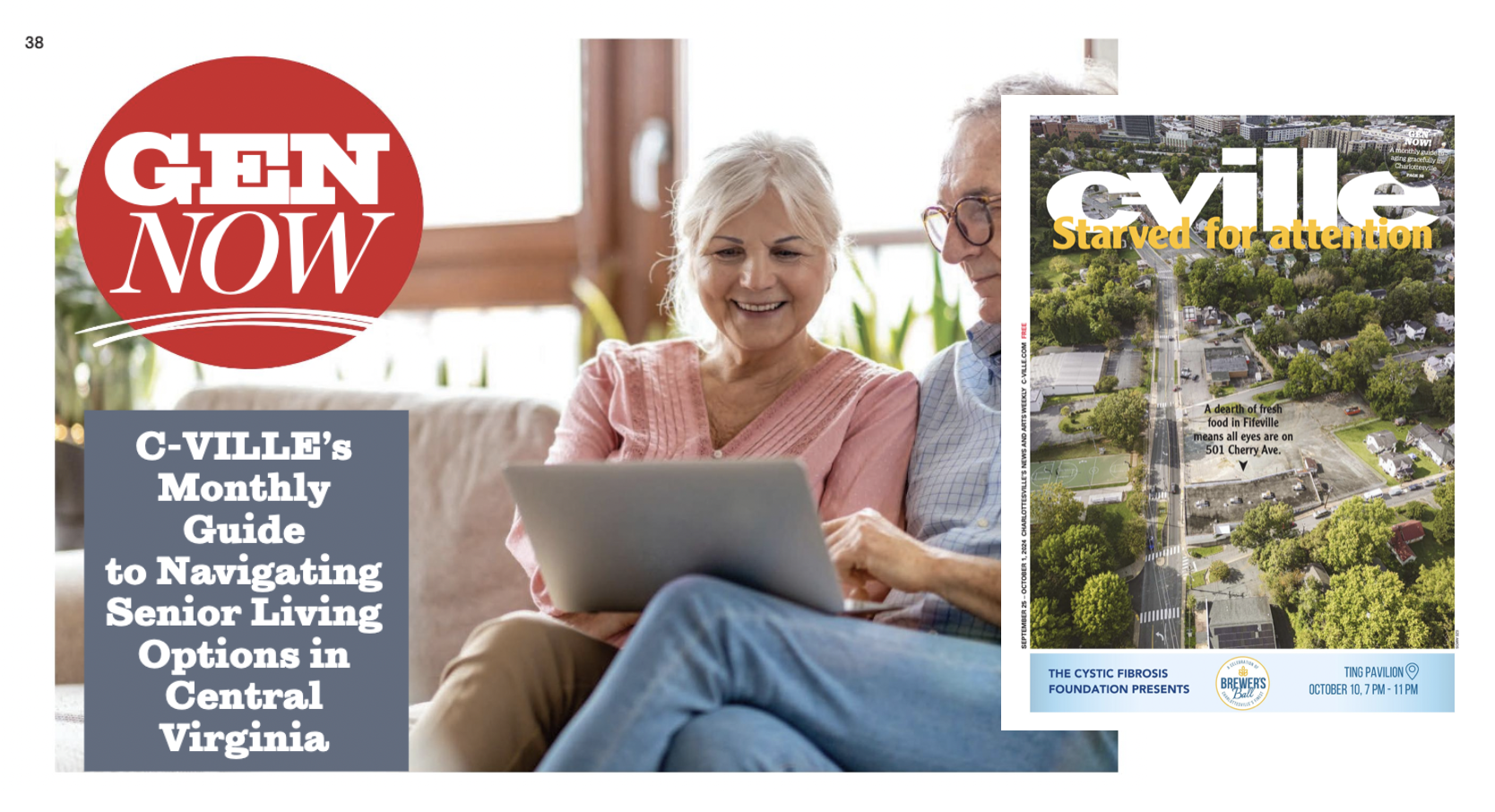Your parents are in the 80s and still living in the house where you grew up. Your mom was diagnosed with Alzheimer's a year ago, and your dad has been managing, but you're starting to worry...
You notice your 82-year old mother-in-law is having difficulties living alone, but your suppose and his siblings aren't talking about it…
A neighbor in her late 70s tells you they are losing their housing and because they are a fixed income they don't know what to do. You notice she's been anxious, and not eating right...
Your father has been living alone in South Carolina for years and seems to be doing okay, but you are starting to think he needs to be closer to you in Virginia.
You work full-time, have two young children, and while your mom has been a help since they were born she's the one needing help now...
Your Aunt has dementia and you're struggling to be patient and supportive. But you're not sure you can handle what's happening and don't know where to turn…
You and your spouse sold your house and moved into a small cottage in a senior living facility. Together, you've made good decisions to maintain your independence, as your children live far away and have their own lives, but your spouse is in cognitive decline and you're wondering how you're going to plan for the future…
Do any of these scenarios sound familiar? If so, there’s a good chance you’re about to become a caregiver, you may already be one, or caregiving is about to become a lot more complicated.
When faced with these kinds of situations, many people keep the reality of what’s happening at arm's length for as long as they can. Indeed, they may feel as though these situations have snuck up on them without warning. After all, Mom may have always been the one who took care of things, so imagining yourself taking care of her may be difficult even to imagine. Maybe you already know you’re not cut out to be a caregiver. Which of your siblings will step up? What roles will you all have? Maybe you were hoping things would be all right for a few more years...until your career was more on track, until the kids were a little older, until...
There's no sugarcoating it. Caregiving situations can arrive in unexpected and inconvenient ways. And for many people, there's a period of adjustment to this new reality.
“My caregiver mantra is to remember: the only control you have is over the changes you choose to make," writes author and licensed clinical social worker Nancy L. Kriseman, who wrote a book on mindful caregiving.
Indeed, in many ways, caregiving is about change, about roles being reversed or rearranged, about time marching
relentlessly forward, and while change can be difficult it also creates space for something new to arrive...if we are open to it.
Most importantly, you are not alone. JABA provides caregiver support services that can connect you with a variety of resources and help you come up with a plan. JABA also has specialized care centers in Charlottesville and Louisa for people who need extra help during the day. Sentara Martha Jefferson Hospital has a dedicated caregiver center, the UVA Memory and Aging Care Clinic and the Alzheimer's Association Central and Western Virginia offer invaluable care and resources, and the Virginia Department for Aging and Rehabilitative Services provides a wide range of resources for caregivers in Virginia.
While your caregiving journey might have come a little earlier than you thought it would, and everything can feel a little confusing and overwhelming, now's the time to reach out for help and guidance. And now's the time to find your voice.
“As your care recipient’s advocate, be involved, don’t accept the status quo, and don’t be afraid to voice your concerns,” writes Kriseman.
David McNair handles communications, media relations, and social media efforts for JABA. This story originally appeared in C-Ville Weekly.

